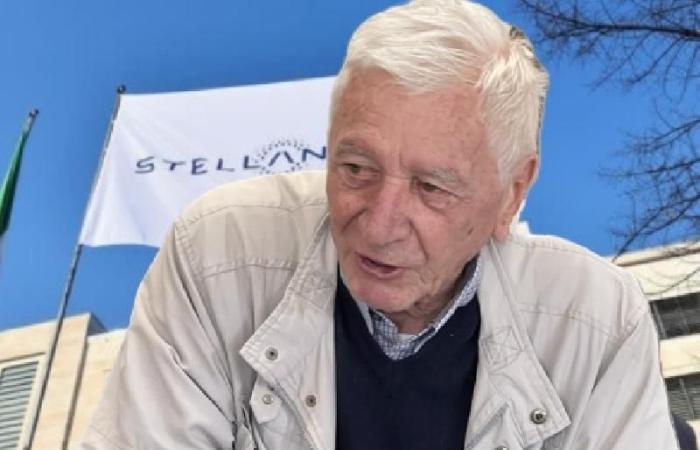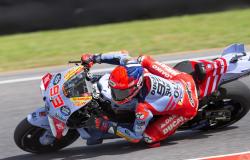Rocco Zagaria 2.04pm Sunday 23 June 2024
It is not at all a surrender or resigned acceptance of what exists, but the invitation to shift one’s gaze: “The decline is there, there is no point in hiding it, but reality and imagination must be combined”. Interview with one of the most brilliant and visionary minds, former advisor to Prodi (and Chiamparino)
“My long and fascinating journey in the CISL has always been as a traveler and not as a tourist”. Bruno Manghi, born in 1941, certainly needs no introduction. Sociologist, trade unionist, trainer and political advisor (from Roman Prodi to Sergio Chiamparino), Manghi led the Cisl Of Turin from 1985 to 1992 and was director of the Study Center of Taranto and then of Florence, advisor to the first Prodi government, member of the Management Committee and advisor to the Company of Saint Paulas well as president of the Mirafiori Foundation. A refined and profound intellectual, one of the most brilliant and visionary minds of the Italian trade union movement, he is the author of numerous books which have trained generations of trade unionists, especially of the CISL. How can we forget essays such as Decline by recendo, Union Internal, Do good, The wealthy And The Transformations of Work?
In the book The union and the surrounding areaedited by Carlo Degiacomi for Edizioni Lavoro, 2023, Manghi speaks, together with Tom Dealessandri And Nanni Tosco, two former general secretaries of the Turin CISL like him, of his life, his trade union experience and his political and social commitment in a Turin overturned by the changes of recent decades. “We are talking about different eras and societies that have marked not only trade union activity, but our very lives. The CISL is a large community, inserted in the present and in the future. Outside, however, there is the rest, there is the world! And today we unfortunately live in a hostile and difficult world.”
What do you think of the current Italian political situation?
“The current Italian political situation is the symptom, even if I believe in a future awakening, of a society of much greater well-being compared to the times of my childhood. I see an Italian society sitting back a bit, wanting to enjoy this well-being, even if it is slowly crumbling. Then we will wake up.”
And what about Europe?
“Europe is our homeland. Precisely because of its differences, because of its difficulties, it is a fantastic thing but which, obviously, also places limits on national and individualistic dreams.”
Let’s talk about the union. How do you see workers’ organizations in such a complicated context?
“The trade union movement, here and throughout the West, must not think about the years it lived (and which were mine) on the crest of the wave as one of society’s greatest interlocutors. It has already been very good at surviving the disappearance of political parties and the weakening of the Church for a long time. It’s no small thing. Obviously a different and more determined role had to be carved out. It is no longer anyone’s main interlocutor, but as a subject of defense and protection, the union confirms itself as a leading social protagonist and not only in Italy. As a general actor, however, he has his difficulties.”
And your CISL?
“It confirms itself as a place of freedom, a lively and competitive place that does not need unanimity. Even the CISL has changed its skin in recent decades, with a game of categories within it. Industry has declined to some extent, the transport and service sectors have exploded, the public sector continues to be central and schools crucial. The union, as we experience it in CISL, is a large federation of categories.”
And we come to your city, Turin. What can be done to counteract its decline?
“To hope! Spread a feeling of hope because if we continue to focus our attention on the decline, it’s over. There is decline, there is no point in hiding it, but reality and imagination must be combined.”
In your opinion, does Mirafiori still have a future?
“We will see. Let’s not make it too difficult, because the more we link Mirafiori to the decline of Turin, the more we give support to those who should take care of its fate and instead don’t”.
In Turin the manufacturing sector still has a certain importance. Why is an industrial legacy important?
“Just as the military legacy was fundamental to Turin’s industrial adventure, its manufacturing vocation is something that cannot be erased. The mentality, the discipline, the organizational sense, the industrial passion are things that are not lost, even if they can be applied in unknown places. It’s as if we were talking about Genoa without its port.”
Recently, presenting the book, The union and the surrounding area, in which she talks about herself together with two other former secretaries of the Turin CISL, she stated: “I was a traveller, not a tourist”. What does she mean?
“I made many tours in Italy and around the world on behalf of the union, thanks to the push of people like Pierre Carniti and other leaders. I also spent many years in the south of Italy. My experience makes me say that the traveller, compared to the tourist, is someone who knows how to stay an extra day in a place. Because with just one day you inevitably remain a tourist. Here, in my life I have always tried to be a traveler.”
(Rocco Zagaria’s interview was published in Conquiste del Lavoro on 19 June 2024)
© Conquests of Work, courtesy






